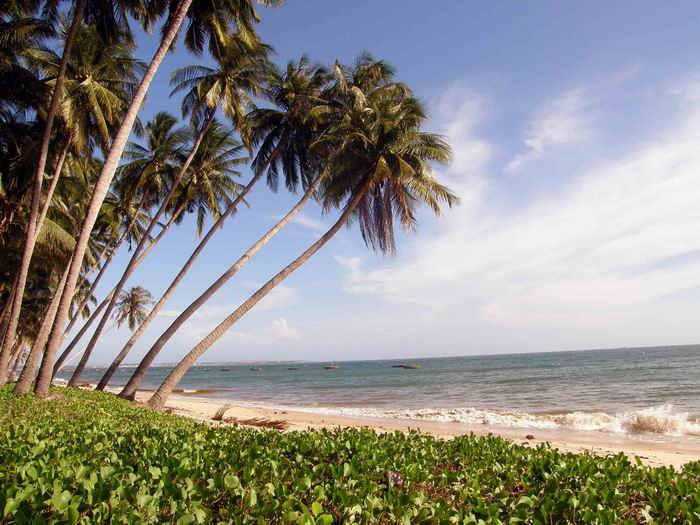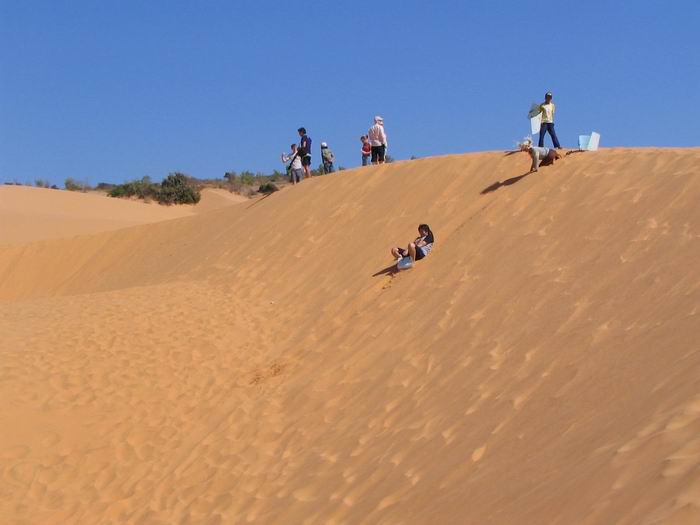Located 200 km north of
Ho Chi Minh city, Mui Ne has quickly
been transformed from an isolated stretch of beautiful white
sand to one long row of resorts. While there's still a fishing
village at the east end of the beach, it's tourists that make up
most of the population. The boom in top-end resorts hasn't
killed the chilled surfie vibe, although it has brought an
increasing number of up-market restaurants and souvenir shops.
It's an unusual set up. as everything is spread along one 10km
stretch of road - the
accommodation is on the beach side, and
the restaurants and bars mainly on the other.
Mui Ne sees only
about half the rainfall of nearby Phan Thiet. The sand dunes
help protect its unique microclimate, and even during the wet
season (from June to September) rains tend to be fairly light
and sporadic. Mui Ne's developing a reputation as the action
capital of the coast. There's no
scuba diving or snorkelling to
speak of, but when
Nha Trang and
Hoi An get the rains,
Mui Ne
gets the waves. Surfs up from August to December. For
windsurfers, the gales howl as well, especially from late
October to late April, when swells stir over from the Philippine ty-phoons. Kite-surfing is very popular. If this all sounds too
much like hard work you can simply splash about in the clean,
clear water. One major problem the area faces is the steady
creep of coastal erosion. Many resorts have almost completely
lost their beaches and rely on sandbagging to keep the little
they have left.
Mui Ne is famous for its enormous red and white sand dunes.
These have been a favourite subject matter for many a Vietnamese
pho-tographer, including some who sit like camels on the blazing
hot sand for hours, waiting for the winds to sculpt the dunes
into that perfect Kodak moment. If you visit, be sure to try the
sand-sledding. You'll need a jeep to explore these properly, but
be careful to agree on an itinerary for the tour, preferably in
writing. We've heard com-plaints, particularly about "sunset
tours' that cut short with the sun high in the sky and the
drivers getting aggressive when challenged. Also of interest is
the Fairy Spring (Suoi Tien), which is really a stream that
flows through a patch of dunes with interesting sand and rock
formations. It's a beautiful trek wading up the stream from the
sea to its source, though it might be wise to hire a local
guide. You can do the trek barefoot, but if you're heading out
into the big sand dunes, you'll need leather soles on your feet;
sandals are even questionable during the midday sun.
Heading west, Po Shanu ChamTowers occupy a hill near Phan Thiet,
with sweeping views of the town and a cemetery filled with candy
like tombstones. Dating from the 9th century, this complex
consists of the ruins of three towers, none of which are in very
good shape. There's a small pagoda on the site, as well as a
gallery and shop...
Source: lonely planet







